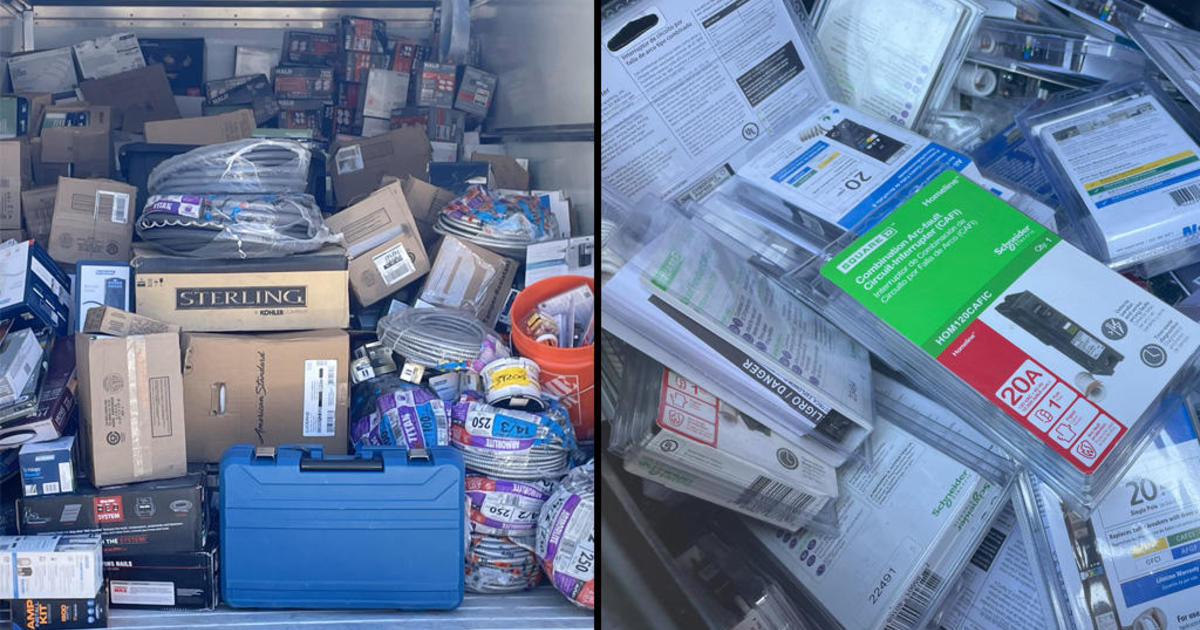Intel's Net Leaps 59 Percent In Omen For PC Industry
SANTA CLARA (AP) -- Intel Corp. offered an encouraging sign Tuesday for what the computer industry might expect from the all-important holiday shopping season.
The world's biggest maker of microprocessors, the "brains" of PCs, reported that its third-quarter net income leaped 59 percent and revenue rose 18 percent. The results topped analysts' expectations and showed that economic jitters didn't ruin consumers' appetite for new computers during the back-to-school crush.
Intel's fourth-quarter forecast suggests that demand is expected to stay solid.
It was what many anxious investors had hoped to see, since the fall quarter was widely considered a bust for PC makers, and some feared the winter period would also be bleak.
Intel shares rose 19 cents, about 1 percent, to $19.96 in extended trading. Before the release of results, they closed the regular trading session up 21 cents, or 1.1 percent, at $19.77.
Intel is a bellwether because its chips are inside 80 percent of the world's PCs, and the company has unparalleled insight into whether the largest computer makers are preparing for robust sales, or bracing for bumps in the road. And as the first major technology company to report third-quarter earnings, Intel is a harbinger of what Wall Street can expect from other computer companies as they report in the coming weeks.
Intel said after the market closed that it earned $2.96 billion, or 52 cents per share, compared with $1.86 billion, or 33 cents per share, a year ago. Analysts expected 50 cents per share, according to a Thomson Reuters survey.
Revenue rose 18 percent to $11.10 billion, from $9.39 billion. Analysts expected $10.99 billion.
Analysts' projections would have been higher had Intel not cut its guidance in August, blaming weak consumer PC demand. Its main rival, Advanced Micro Devices Inc., which reports its results Thursday, followed suit. Leading PC makers also raised red flags.
Concerns over the weak economy and high unemployment caused shoppers to hang on to more of their money this fall, skimping on certain types of electronics. For PC makers and their suppliers, those pressures blunted a year-and-a-half-long run that buoyed their industry during the worst of the recession. Low-priced "netbooks" were a particularly hot seller, but their momentum has slowed.
Intel CEO Paul Otellini said the company is still seeing healthy worldwide demand for all types of computing products. For the fourth quarter, Intel is forecasting revenue of $11.0 billion to $11.8 billion. Analysts were expecting $11.3 billion.
"This is a pretty healthy state of affairs right now, and I don't see that really changing into 2011," Otellini said on a conference call with analysts.
Intel's results touch on somewhat of an identity crisis that the computer industry is going through.
Smart phones and new devices such as Apple Inc.'s iPads are broadening the computer market, and even the definition of a personal computer, well beyond PCs.
That is forcing established companies such as Intel to give themselves expensive makeovers.
In August, Intel announced the biggest acquisition in its 42-year history, the $7.68 billion all-cash deal for McAfee Inc. The addition will help Intel improve the security of its chips while allowing it to sell security software alongside a raft of new chips it's planning for a variety of devices, from cell phones to cars to essentially any computer that connects to the Internet.
A week and a half later, Intel revealed that it is paying $1.4 billion for the wireless-chip division of Germany's Infineon Technologies AG, which makes the chips used in Apple's iPhone. That deal shows Intel is serious about addressing smart phone makers' complaints that Intel's current wireless chips drain batteries too quickly.
Yet the industry's boogeyman of the moment is the tablet computer. Apple sprinted ahead of the pack with its very popular iPad, which uses a chip that Apple designed. Other computer makers are quickly following suit, some using Intel's chips.
The signals so far have been mixed about tablets' effect on PC sales. Some signs point to them being additive, or that early adopters are buying them to complement, instead of replace, their existing PCs. But others point to some "cannibalization" of laptop sales, a worrisome prospect for companies that aren't making the devices or supplying the chips that run them.
Apple sold about 3.3 million iPads in the gadget's first three months on the market. Some analysts have estimated that it sold more than 5 million during the quarter ended in September.
Intel executives told analysts Tuesday that it's too early to tell how much business tablets are taking away from PCs, but that they expect there to be some market-share losses to tablets at the fringe of the industry.
© 2010 The Associated Press. All rights reserved. This material may not be published, broadcast, rewritten or redistributed.



